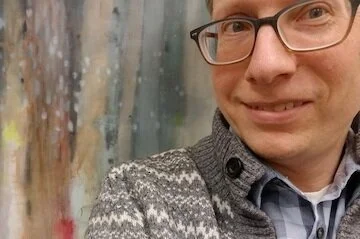We, The Science Writer
Photo courtesy of Pexels.com
When it comes to science writing, should it matter who the “we” are behind the keyboards?
President Ronald Reagan’s press secretary, Larry Speakes, earned historical infamy for joking about the AIDS epidemic during the early 1980s. He did so not just once, but on a recurring basis, as the death count climbed. Every reporter at his press briefings—many of whom can be heard laughing in recordings—was a potential science reporter, someone who could have shed light on a growing public health crisis. But the epidemic remained underreported, except for in the gay community.
Journalism, of course, needs people who are willing and able to explain science to the layperson, but it also needs diverse contributors who recognize issues as they occur and can humanize them with great insight.
We, the co-founders and inaugural contributors to The Science Writer, acknowledge we aren’t a very diverse group. Most of us are white, as are our instructors. Most of us are female. We do come from different backgrounds, in some cases from different countries. We possess unique identities and viewpoints. Yet all of us are privileged enough to be studying at one of America’s preeminent higher-ed institutions.
Who are we to write about the health disparities that so often impact minority or underrepresented populations?
We are people who are learning—and eager to share what we find with a wider audience.
Our mission is to document the issues and voices emerging from disparities. In this issue, you will find locally reported articles on a sampling of the pressing health concerns faced by historically marginalized groups, divided into the categories of Cancer, Technology, Maternal & Child Health, Environmental Health, Food Insecurity, and Hidden Inequities.
Photo courtesy of Pexels.com
The story of health systems is a complex one, and this issue of The Science Writer, largely focused on problems, doesn’t fully do that story justice. Medical institutions have undeniably made mistakes, creating lasting damage to groups and individuals. And yet, hospitals and the government have also done a great deal of good over time. Safety net programs such as Medicaid save lives, as do hard-working doctors and nurses.
Johns Hopkins Hospital itself is an institution with a mixed legacy: one that historically segregated based on race while also being a leader in helping the poor.
Students created this website and the first issue’s content as part of an online residency course, Public Health in Action. The bulk of the work was performed during a 10-day period that was also filled with speakers and other activities. We benefited from the vision and guidance of our instructors, Melissa Hendricks Joyce and Brian Simpson, who provided a loose framework for our unprecedented project, knowing that we would have to struggle with some big decisions while discussing potentially uncomfortable topics.
We worked through problems that arose. We agreed more than we disagreed.
As The Science Writer grows, we anticipate subsequent students will expand the scope, contributing new articles not just on public health, but on other topics as well. We hope that Johns Hopkins as an institution will work hard to make sure that these future contributors—the prospective students they encourage, market to, and admit—are increasingly more diverse.
Yes, it matters who writes about science, as much as the words on the page.





